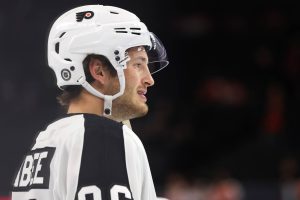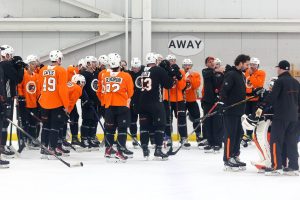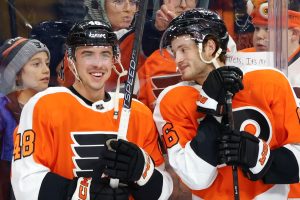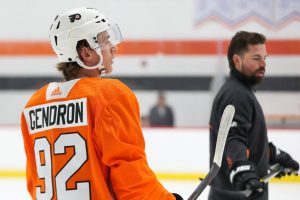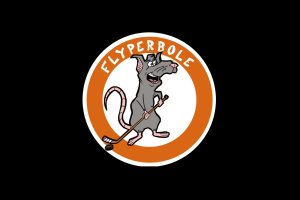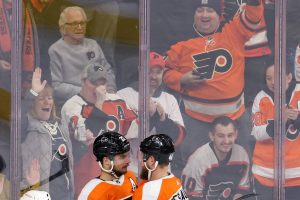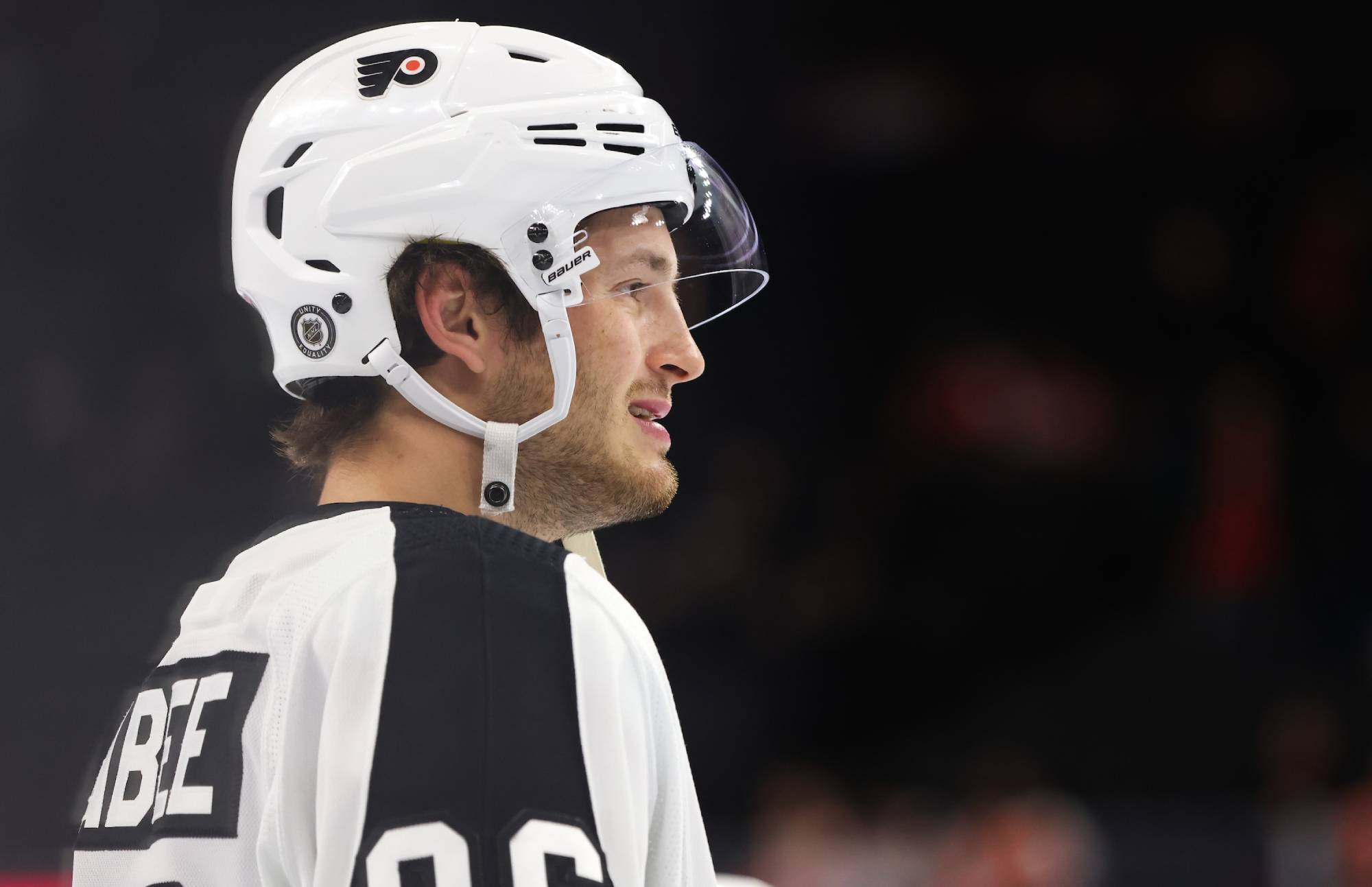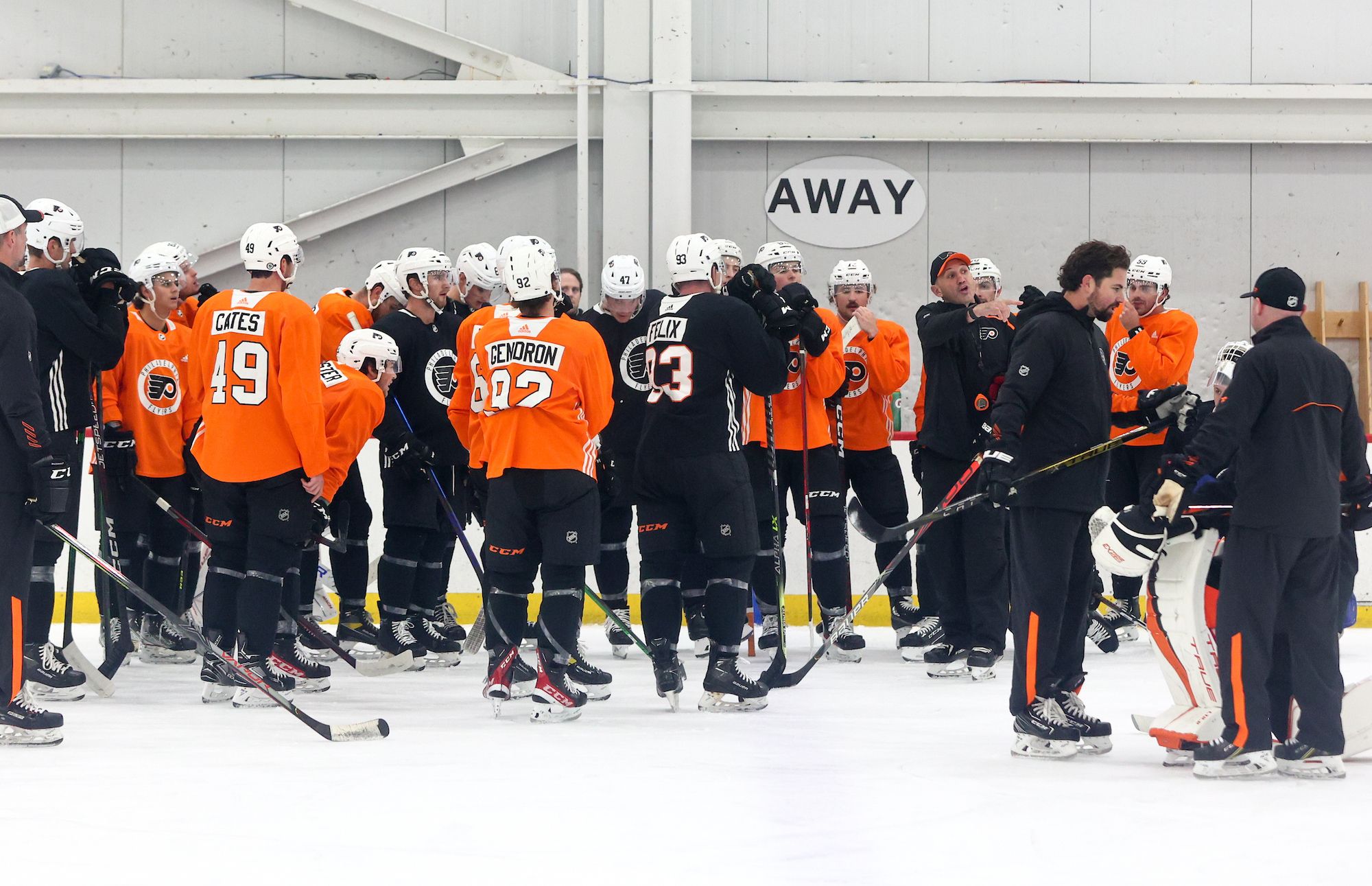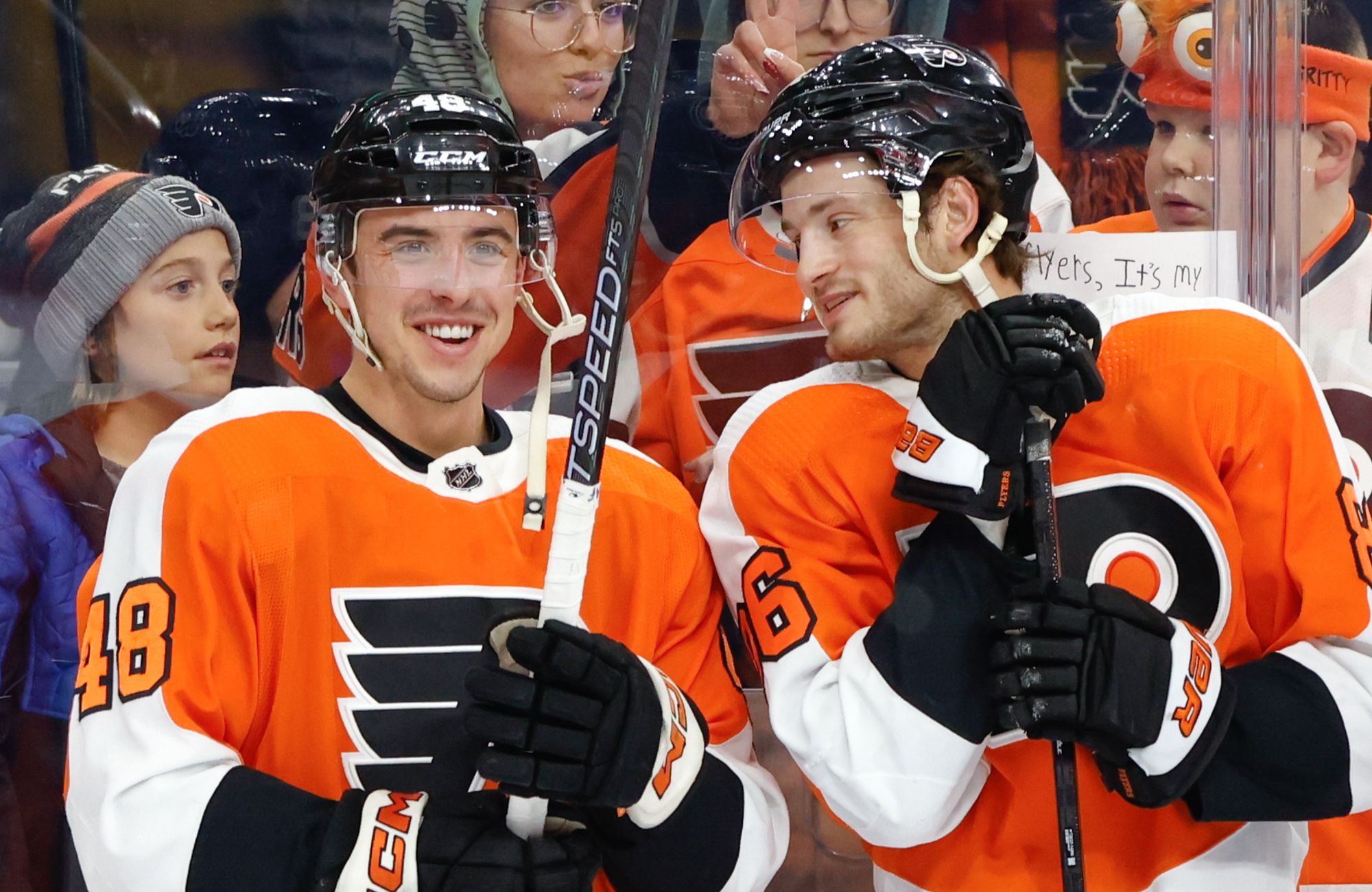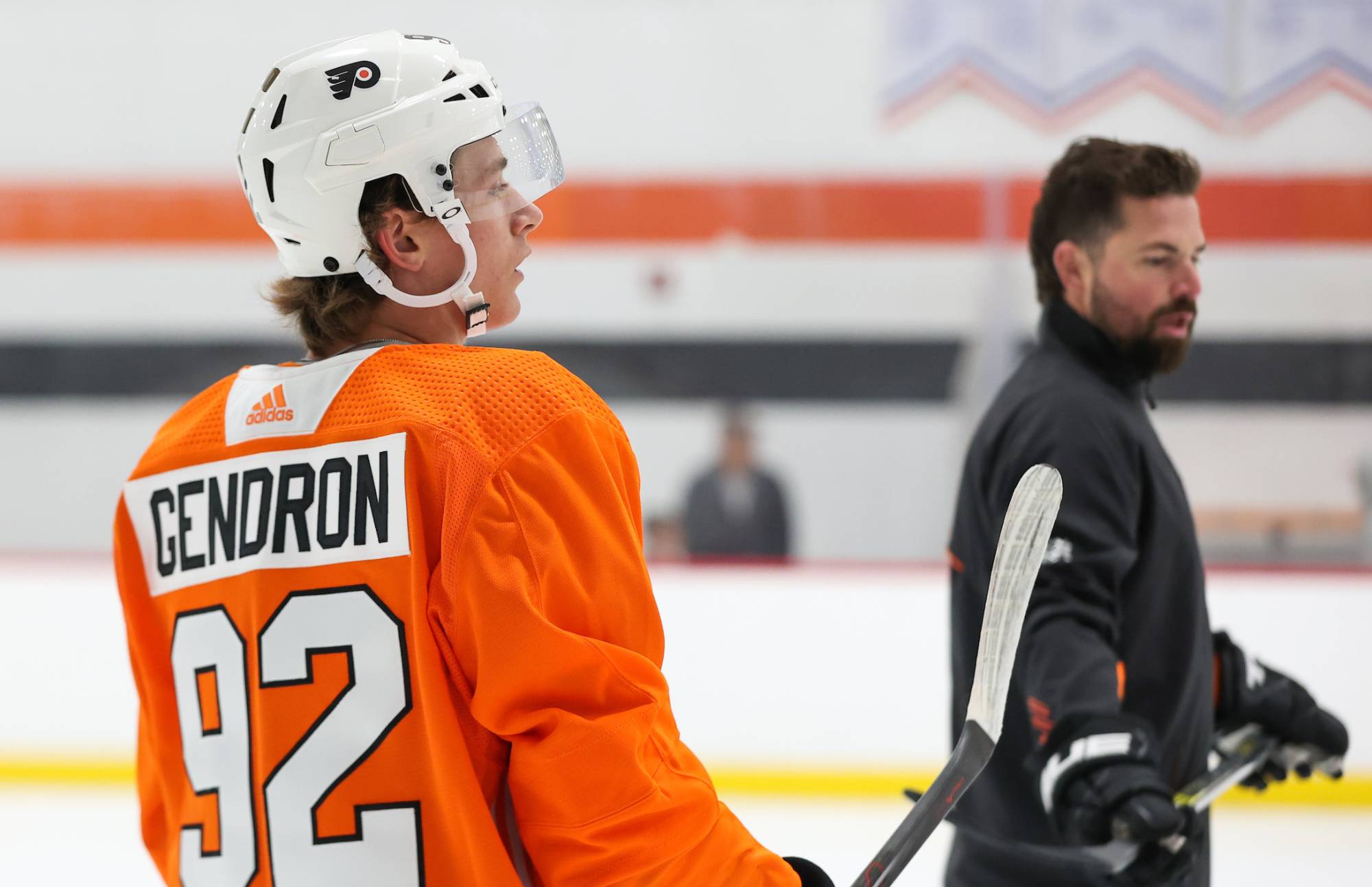Paul Holmgren chatted with ESPN’s Pierre LeBrun for an interview that ran yesterday morning at the Worldwide Leader in Sports whatever you want to call them.
You could call the talk Homer’s season-ending exit interview to a certain extent though, where the Flyers’ GM summed up the big questions heading into the offseason and discussed what went wrong in this playoff-less season.
Read the whole thing here. Let’s go through some of Homer’s thoughts and react to them below.
***
“We rely a lot on Brayden Schenn and Sean Couturier, they both played significant minutes this year,” Holmgren said. “They probably had similar years than they had last year in terms of numbers if you prorate it, but obviously when you’re playing those minutes maybe you expect a little more. Maybe our expectations were a little bit too high for those young guys. I think they’re both good young players; they’re going to continue to grow and get better. Sometimes you can’t speed up that process no matter what you do. You just have to let time take care of it.”
It’s nice to hear this straight from the horses mouth.
The Flyers’ offensive struggles this season can be summed up pretty succinctly, in my opinion: 1) A lot of players played over their heads last season — hi, Scott Hartnell! — and those players took steps back this season. 2) The team is really young up front and those guys can’t be expected to carry a big chunk of the load. But they were. The expectations — not necessarily from the fans, but judging from Homer’s comments, the organization itself — for Schenn and Couturier in particular were apparently asinine.
Let’s start with Schenn. He really struggled in 54 games last season, scoring just 18 points in 54 games during his first year with the Flyers. He was given relatively easy defensive assignments (54.8 percent of his shifts started in the offensive end of the ice and he faced easier competition than every forward not named Jody Shelley) and he didn’t have much success in driving play towards the opposing end of the ice.
This year, he’s improved in every metric. In 10 fewer games, he’s already scored seven more points than he did last season, he’s facing tougher competition than he did last season and he’s driving play forward, something he didn’t do even with easier opponents last year. He’s playing about a minute more per game than he did a year ago — eighth in TOI per game among forwards as opposed to 11th last season. (Of course, that’s partially by roster necessity as well.)
Schenn’s point totals might not be gaudy but he’s steadily grown off of last season.
Regarding Couturier: Judging by how Peter Laviolette has relegated him to a fourth-line role at times this season, it’s pretty obvious that the Flyers are unhappy with his offensive production. That still seems absolutely crazy to me given that he’s still been one of the top defensive players in the league again (at age 20, remember) and he’s faced the toughest defensive assignments on the team this season. When you’re playing a defensive role, it’s not exactly easy to put the puck in the net with frequency.
“Significant minutes” does not equal “greater opportunity to score goals.” Not when you’re used the way Sean Couturier’s been used … and then inexplicably punished by the coach for stretches because he’s not scoring goals.
All that said, Couturier is actually on par for an offensive season similar to what he saw last year — a little under 30 points over 82 games — and he’s doing that while shooting at just 5.7 percent this year. He shot at 11.2 percent last season. He’s not getting the bounces, he’s being used overwhelmingly as a defensive player and he’s still growing as an offensive threat.
All in all, this is nice to hear from Holmgren. They aren’t giving up on Brayden Schenn or Sean Couturier, and they recognize that they are still young guys with a ton of potential. They asked too much of them this season and recognize that they can’t force their growth.
***
“I’ve never even thought along those lines,” Holmgren said. “I think Peter’s a good coach, I think our coaches have done a good job under the circumstances. Nobody’s happy with the position we’re in and not being in the playoffs. We need to sit down at talk at the end of the year and figure out a way to get back in. That’s what we do.”
The company line throughout this difficult season has been that the Flyers don’t plan on firing Peter Laviolette, and that’s what we’re following into the offseason. But let it be pretty clear: If the Flyers do fire Peter Laviolette, they’ll be going back on their word for roughly the millionth time in the last decade.
Of course, the Flyers should back up their publicly guy until the bitter end, but he can say “I think Peter’s a good coach” without saying “I’ve never even thought along those lines.” This is a vote of confidence.
***
On the Steve Mason acquisition:
“Steve is a guy that we’ve liked. When the opportunity came up to make the trade for him, it was the intention of having good goaltending,” Holmgren said. “I think right now with Ilya and Steve, we’ve got good goaltending moving forward. Any talk of anything other than that I think is out of bounds.”
The point, Holmgren said, is to protect Bryzgalov next season so he doesn’t have to play too many games.
“Ilya played a lot of games this year, but he’s not going to play 82 games next season,” Holmgren said. “You need a guy that can go in. Steve’s a young guy still, he’s had some success at an early age in our league. I think working with (goalies coach) Jeff Reese he can get back to a good level. He certainly has the right attitude about it. He’s been great since he’s been here.”
The thing I can’t reconcile here is how the Sergei Bobrovsky trade played into all of this. We liked the Bob trade at the time, and we’ve discussed how his current run at the Vezina Trophy with the Columbus Blue Jackets (ugh) can’t be pinned negatively on Holmgren. Hindsight being 20/20 and all, we can’t blame Holmgren for what happens after a trade when the outlook made sense at the time of the deal. That’s just not fair, nor is it productive.
But going back to that outlook: We were all under the assumption that Bob was traded because the Flyers didn’t plan on using him to his full potential. He wasn’t going to get playing time with Bryz ahead of him. That was obviously before amnesty buyouts were a thing under the new collective bargaining agreement, so maybe all has changed when it comes to Ilya Bryzgalov’s future in Philadelphia. If they knew amnesty would be a thing, perhaps they would have held on to Bobrovsky and waited everything out for another year or two.
The talk last season was that if Bryzgalov had a clear hold on the No. 1 job and got a ton of playing time, he’d run with it and have success. In that context, trading Bob made sense. The talk now is that Bryz can’t play all the games, so they need to shore up the backup position, and that’s why they picked up Steve Mason — the guy who sucked so bad, CBJ felt the need to trade for Bobrovsky.
Does this quote from Homer indicate that they only expect Mason to be a backup during his time here and that they aren’t thinking of amnestying Bryz at all? It seems like they want him to be more than that or at least feel he has the potential to be more than that. Is he saying that Bryzgalov needs that competition to succeed as a quality starter, and if that’s the case, why didn’t Bob get that opportunity?
And when he says that they were looking for “good goaltending” in trading for Mason, is that implying that they felt they didn’t have good goaltending with just Bryzgalov in net, something that’s counter to their apparent thought process last summer?
I just can’t wrap my head around this whole situation and the sequence of events. Something is missing here.
***
What do you think of Homer’s interview and his apparent thought process heading into the offseason?
